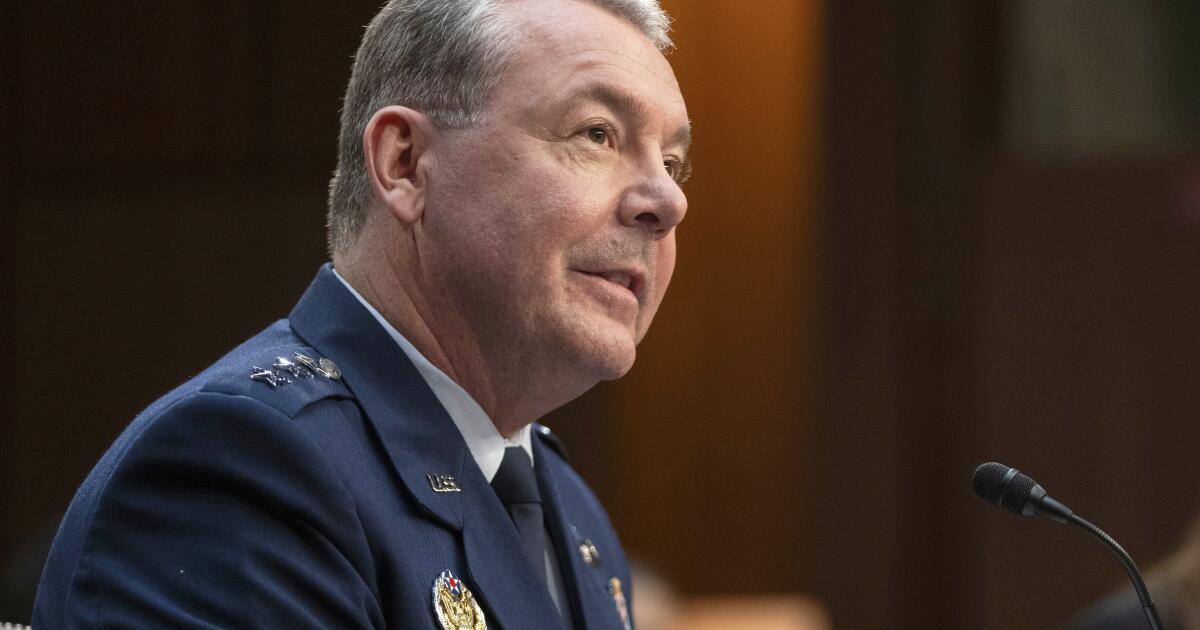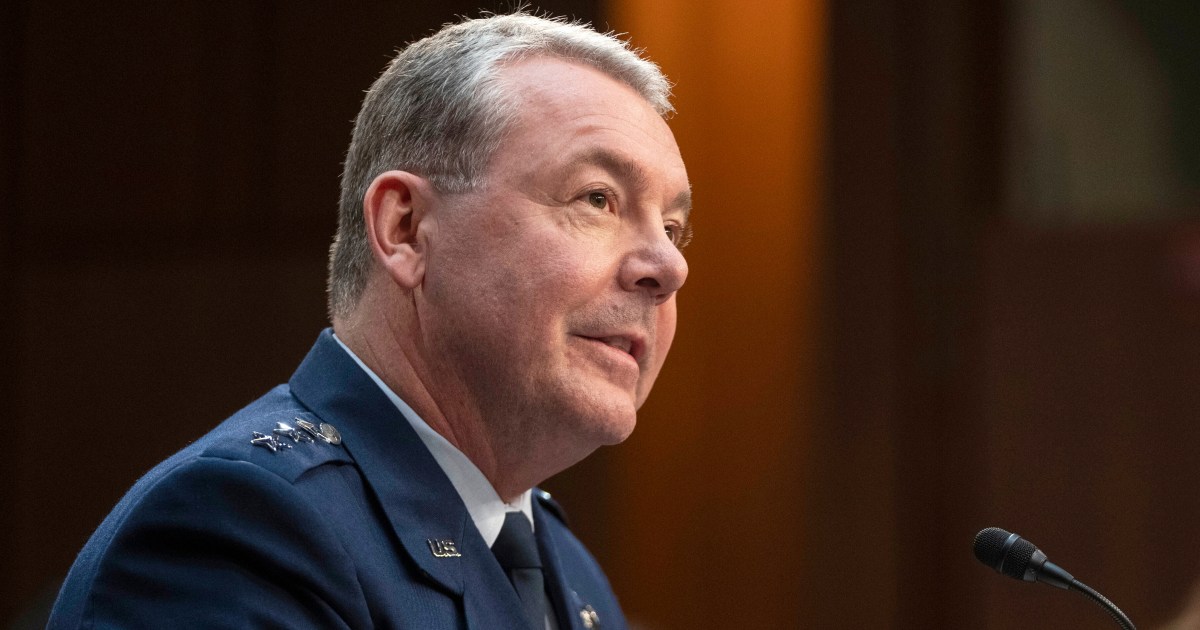Hegseth fires general whose agency’s intel report on strikes in Iran angered Trump
WASHINGTON — Defense Secretary Pete Hegseth has fired a general whose agency’s initial intelligence assessment of U.S. damage to Iranian nuclear sites angered President Trump, according to two people familiar with the decision and a White House official.
Lt. Gen. Jeffrey Kruse will no longer serve as head of the U.S. Defense Intelligence Agency, according to the people, who spoke Friday on condition of anonymity because they were not authorized to discuss it publicly.
Hegseth also fired Vice Adm. Nancy Lacore, chief of the Navy Reserve, and Rear Adm. Milton Sands, a Navy SEAL officer who oversees Naval Special Warfare Command, another U.S. official said.
No reasons were given for their firings, the latest in a series of steps targeting military leaders, intelligence officials and other perceived critics of Trump, who has demanded loyalty across the government. The administration also stripped security clearances this week from additional current and former national security officials.
Taken together, the moves could chill dissent and send a signal against reaching conclusions at odds with Trump’s interests.
Agency’s assessment contradicted Trump
Kruse’s firing comes two months after details of a preliminary assessment of U.S. airstrikes against Iran leaked to the media. It found that Iran’s nuclear program had been set back only a few months by the military bombardment, contradicting assertions from Trump and Israeli Prime Minister Benjamin Netanyahu.
The president, who had pronounced the Iranian program “completely and fully obliterated,” rejected the report. His oft-repeated criticism of the DIA analysis built on his long-running distrust of intelligence assessments, including one published in 2017 that said Russia interfered on his behalf in the 2016 election.
The Office of the Director of National Intelligence — which is responsible for coordinating the work of 18 intelligence agencies, including the DIA — has been declassifying years-old documents meant to cast doubt on those previous findings, which have been endorsed by bipartisan congressional committees.
After the June strikes on three Iranian nuclear sites, Hegseth lambasted the press for focusing on the preliminary assessment but did not offer any direct evidence of the destruction of the facilities.
“You want to call it destroyed, you want to call it defeated, you want to call it obliterated — choose your word. This was a historically successful attack,” Hegseth said at a news conference at the time.
Democrats raise concerns
While the Pentagon has offered no details on the firings, Democrats in Congress have raised alarm over the precedent that Kruse’s ouster sets for the intelligence community.
“The firing of yet another senior national security official underscores the Trump administration’s dangerous habit of treating intelligence as a loyalty test rather than a safeguard for our country,” said Sen. Mark R. Warner of Virginia, vice chairman of the Senate Intelligence Committee.
Rep. Jim Himes of Connecticut, the top Democrat on the House Intelligence Committee, called on the administration to show why Kruse was fired, or “otherwise, we can only assume that this is another politically motivated decision intended to create an atmosphere of fear” within the intelligence community.
Trump has a history of removing government officials whose data and analysis he disagrees with. Earlier this month, after a lousy jobs report, he fired the official in charge of the data. His administration also has stopped posting reports on climate change, canceled studies on vaccine access and removed data on gender identity from government sites.
Other military and intelligence changes
The new firings culminate a week of broad Trump administration changes to the intelligence community and new shake-ups to military leadership.
The Office of the Director of National Intelligence announced this week that it would slash its staff and budget and revoked more security clearances, a tactic the administration uses against those it sees as foes. The Pentagon also said the Air Force’s top uniformed officer, Gen. David Allvin, planned to retire two years early.
Hegseth and Trump have been aggressive in dismissing top military officials, often without formal explanation.
The administration has fired Air Force Gen. CQ Brown Jr. as the chairman of the Joint Chiefs of Staff, as well as the Navy’s top officer, the Air Force’s second-highest-ranking officer and the top lawyers for three military service branches.
In April, Hegseth dismissed Gen. Tim Haugh as head of the National Security Agency and Vice Adm. Shoshana Chatfield, who was a senior official at NATO.
No public explanations have been offered by the Pentagon for any of the firings, though some of the officers were believed by the administration to endorse diversity, equity and inclusion programs. Trump has demanded government agencies purge DEI efforts.
The ousters of Kruse, Lacore and Sands were reported earlier by the Washington Post.
Toropin, Jalonick and Price write for the Associated Press.




